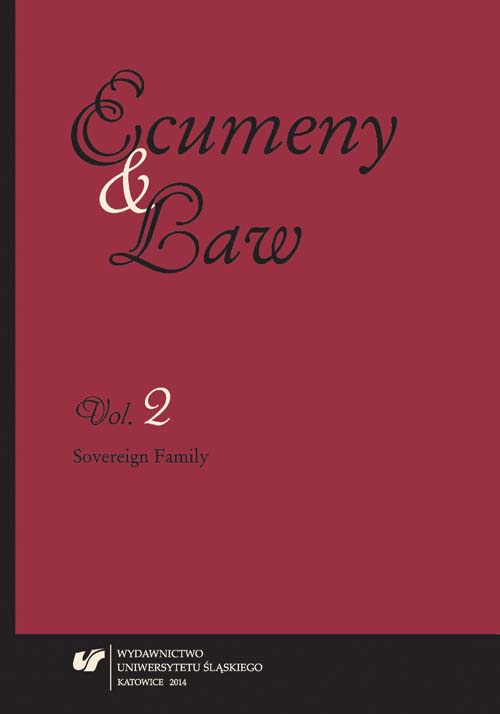The Charter of the Rights of the Family and the Yogyakarta Principles. Two Worlds
The Charter of the Rights of the Family and the Yogyakarta Principles. Two Worlds
Author(s): Marian MachinekSubject(s): Christian Theology and Religion
Published by: Wydawnictwo Uniwersytetu Śląskiego
Keywords: The Charter of the Rights of the Family; Yogyakarta Principles; gender; sexual orientation; protection of children; concept of man
Summary/Abstract: In the current hot debate of the Polish feminist community they further the opinion that the word gender is a notion that describes the domain of scientific research on the cultural dimension of sex and similarly conditioned masculine and feminine role, and therefore has nothing to do with an ideology. The Yogyakara Principles analysis, however, completely contradicts this viewpoint. While in this 35-page-long document, passed in 2006, the word gender is omnipresent and appears a dozen or so times on every page, striking seems the lack of such words as “man” and “woman.” This document contains a re-reading of the fundamental human rights within the context of sexual identity and orientation, while the two notions are so strongly emphasised that they can be perceived as a reference point and interpretation key, or even a criterion for the existence of other fundamental human rights. Utilizing e.g. the right to the freedom of conscience and religion or the right to raise children in harmony with ones conscience is dependent on the approval of the gender outlook on sex. The document expresses clear claims for making equal the rights of relationships based on various sexual orientations with those of a married couple based on a relationship of a man and a woman, with emphasis on the right to have children through adoption or assisted reproductive technology. The juxtaposition of these claims, in the article, with the Charter of the Rights of the Family, published in 1983, showed a diametric discrepancy between the Christian and gender vision of matrimony and family, not only in the issues of secondary importance but also with reference to those fundamental ones.
Journal: Ecumeny and Law
- Issue Year: 2014
- Issue No: 2
- Page Range: 33-48
- Page Count: 16

